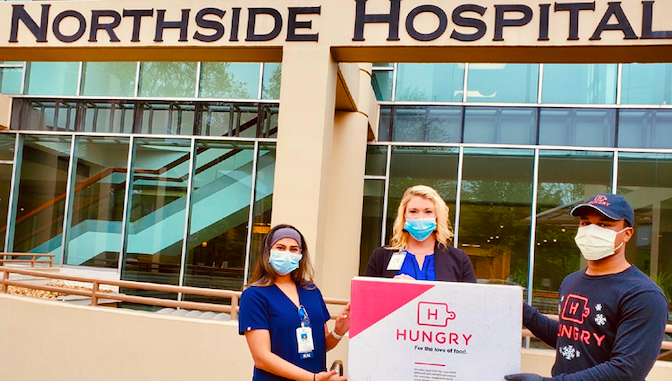A year later, and we’re still here.
This week marks one year since the World Health Organization declared COVID-19 a pandemic.
Many Americans began to realize this coronavirus thing was a pretty big deal when major conferences such as South by Southwest and the national Code for America summit were canceled. Local events started moving online or being postponed, too. At Technical.ly, we made the call on March 12, 2020, to cancel the planned NET/WORK DC hiring fair scheduled for the 24th.
These stories are among first in our archives to mention COVID-19, but in the next 12 months, we’d write the virus’ name hundreds of times. Here are some major themes we’ve covered since:
All-remote-everything
Offices emptied in mid-March, and most have remained so. Companies turned quickly to virtual happy hours and Zoom calls to keep workplace culture alive, while community groups made new use of online spaces. Coworking spaces had to figure out how to host strangers indoors for hours at a time, safely.
Remote life included school, too, presenting challenges for young people and college students alike. Bootcamps have also had to figure out how to meet their students where they’re at.
Professionals adapted. We learned that WFH burnout is real. Mental health became a frequent discussion topic. Telemedicine took off. Now, company leaders must consider what comes next.
Growing awareness of the digital divide
With this shift to virtual, existing inequities were laid bare. Let’s let outgoing Byte Back CEO Elizabeth Lindsey’s op-ed headline speak for itself: “COVID-19 is disproportionately affecting the Black community. So is the digital divide — and it’s not a coincidence.”
As this reality set in, it brought a response: Within days of remote schooling beginning, Comcast began offering two months of free internet through its Internet Essentials program. That has since been extended. The telecomms giant has also doubled its download speed as of this month.
And D.C. government pledged to connect 25,000 student households to free internet access.
Small business support
Municipalities recognized the crushing need for financial resources for suddenly struggling local businesses.
Following federal legislation, the U.S. Small Business Administration launched the Paycheck Protection Program within weeks, distributing hundreds of billions of dollars in first-round loans. That program was re-upped in January and is still accepting applications through March 31.
Companies pivoted to meet new needs and embrace new business models and products. Some made tough layoffs, while some saw business expand. At least one promising startup shut down entirely because of the stresses of the pandemic, even after pivoting to meet it.
Meanwhile, tech jobs stayed mostly resilient, venture capital deals continued to flow and new business formation in the DMV is at a record high.
Social good efforts
D.C. companies and groups sprung into action to support those impacted by the pandemic’s worst effects, from feeding front-line workers to developing a COVID-19 testing locator website.
And Gaithersburg, Maryland-based Novavax began developing a COVID-19 vaccine. Fast forward to this week, and it announced that a late-stage trial found it to be 96% effective against the original virus.
Thankfully, that’s some good news to end the year on.
Before you go...
Please consider supporting Technical.ly to keep our independent journalism strong. Unlike most business-focused media outlets, we don’t have a paywall. Instead, we count on your personal and organizational support.
3 ways to support our work:- Contribute to the Journalism Fund. Charitable giving ensures our information remains free and accessible for residents to discover workforce programs and entrepreneurship pathways. This includes philanthropic grants and individual tax-deductible donations from readers like you.
- Use our Preferred Partners. Our directory of vetted providers offers high-quality recommendations for services our readers need, and each referral supports our journalism.
- Use our services. If you need entrepreneurs and tech leaders to buy your services, are seeking technologists to hire or want more professionals to know about your ecosystem, Technical.ly has the biggest and most engaged audience in the mid-Atlantic. We help companies tell their stories and answer big questions to meet and serve our community.
Join our growing Slack community
Join 5,000 tech professionals and entrepreneurs in our community Slack today!

The person charged in the UnitedHealthcare CEO shooting had a ton of tech connections

From rejection to innovation: How I built a tool to beat AI hiring algorithms at their own game

Where are the country’s most vibrant tech and startup communities?



